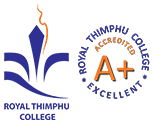Economics studies how households, businesses and governments make choices about how to allocate scarce resources in order to best satisfy individual and social needs. The tools of economics can be used to analyze issues as diverse as unemployment, inflation, globalization, discrimination, environmental issues and taxation. RTC offers courses in microeconomics and macroeconomics, and in selected fields such as money and banking, labor economics, international economics, development economics, and industrial organization.
Economics is widely accepted as the queen of social sciences. Those who wish to develop timeless and internationally accepted skills for a brighter future should opt for this subject. It provides rigorous training in economic principles, methods of economic analysis, and relevant quantitative techniques. It also enables students to apply theoretical knowledge to policy and business formulation through focus on subject-specific skills, cognitive skills and practical skills.
Since the skills that are acquired from studying economics are transferable, economics graduates have access to a wide variety of jobs such as planners, financial analysts, investment analysts, financial planner, academicians, business managers, trade and foreign exchange experts, auditors and bankers. Students can look forward to promising career opportunities both within and outside the country with a variety of organizations after studying economics.
The three years program in BA with a major in Economics has the following modules:
Core theoretical modules
Micro Economics-I
Macro Economics-I
Micro Economics -II
Macro Economics-II
Specialized Economics modules
Public Finance
Money and the Financial System
Development Economics
World Economic History
Industrial Economics
Quantitative modules
Statistics
Mathematical Methods for Economics
Bhutanese economy
Bhutanese Economy-I
Bhutanese Economy-II
